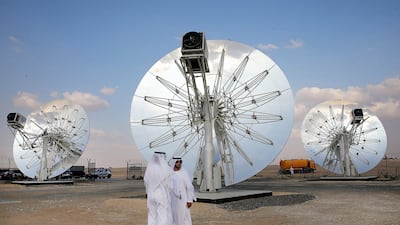Related: How you can save the world by investing in ESGThought so funds
About 85 per cent of high-net-worth investors in the Middle East intend to increase their exposure to ESG (environment, social and governance) and sustainable investments in the future, according to a survey by Geneva-based wealth and asset manager Lombard Odier.
Eighty-one per cent of regional HNW investors said they already take sustainability and ESG into account when making investment decisions, according to the survey, which polled 300 HNW investors and business owners from the UAE, Saudi Arabia, Kuwait and Oman, among others.
“There has been a surge in interest in this type of investment after reading about climate change in the media and social networks,” Arnaud Leclercq, partner holding privé and head of new markets at Lombard Odier, said.
“Earlier, ESG was a good-to-have. Now, it has become more of a must and there is more demand for this type of investment from our international clients and the younger generation.”
However, demand for ESG and sustainable investment spans across generations in the Middle East because of the stronger religious and ethical principles among investors in the region, Mr Leclercq said.
Investment flows to ESG funds fell to $75 billion in the first quarter of this year amid a sharp decline in global risk appetite, rising inflationary fears and higher borrowing costs, according to Institute of International Finance research.
This was the lowest level compared with the previous seven consecutive quarters. Inflows to ESG funds in March were $15bn, their weakest since March 2020, the IIF said in April.
In the year to November 30, 2021, a record $649bn was poured into ESG-focused funds worldwide, up from the $542bn in 2020 and $285bn in 2019, Refinitiv Lipper Research found. ESG funds now account for 10 per cent of fund assets worldwide.
About 72 per cent of investors in the Middle East believe they can generate improved returns through ESG investments, according to Lombard Odier.
Green energy sources — in pictures
Sustainable investments account for 33 per cent of investment portfolios in the region. Investors expect this to increase to 52 per cent in the next five years, the survey found.
“Sustainable investing goes beyond ESG, which focuses more on governance,” Mr Leclercq said.
“You could have a company that is doing well in terms of ESG, but still be a big polluter. Companies have learnt to please investors and the market.”
Respondents cited a need for more clarity and advice from specialists on how to invest sustainably, with 78 per cent stating a desire to receive regular research on sustainable investment ideas and 77 per cent saying they want more information on portfolio sustainability benchmarking, the research found.
Just 29 per cent of respondents said they were “very satisfied” with the service they receive from their banking partner, while 58 per cent are “quite satisfied”, Lombard Odier revealed.
An overwhelming majority of HNW investors in the Middle East also want to reflect their values in their investments. They have already taken steps to integrate their Islamic beliefs through Sharia-compliant strategies and plan to increase those allocations, according to the survey.
About 67 per cent of HNW investors in the Middle East said observing Islamic investment principles is important to them. Sukuks and Islamic loans are the two most favoured Sharia-compliant asset classes in the region, the research found.
Private equity follows close behind, with 30 per cent of investors reporting an interest in private equity that complies with Islamic finance principles.
Sharia investing is also important to younger investors, with 54 per cent aged from 18 to 40 investing in accordance with these principles.
This is demonstrated by the larger Sharia-compliant asset allocation among younger people, who allocate on average 52 per cent to Sharia investments, compared with 48 per cent for those aged 40 and above, Lombard Odier found.
This asset allocation is expected to increase to 60 per cent in the next five years for younger investors, compared with 56 per cent for older investors, the findings showed.







